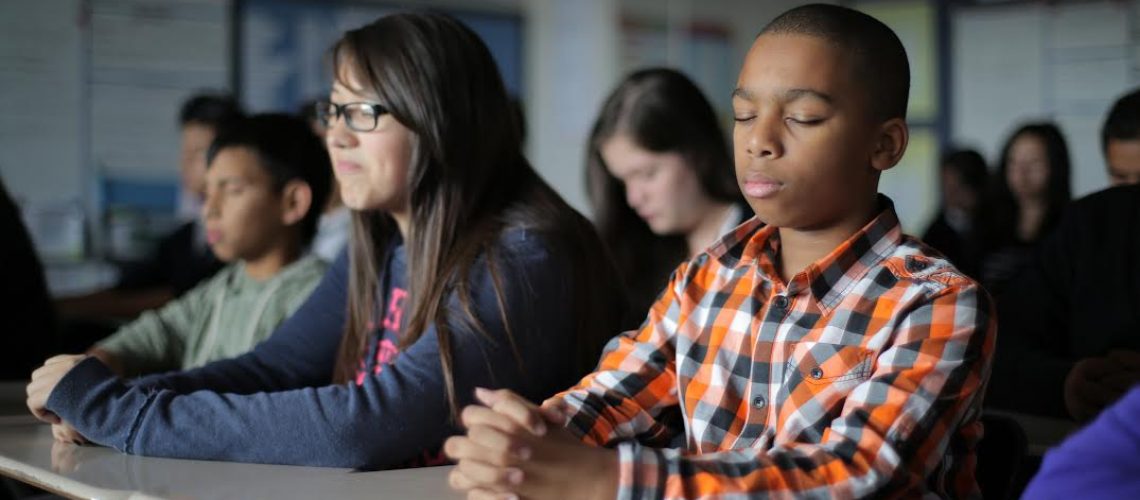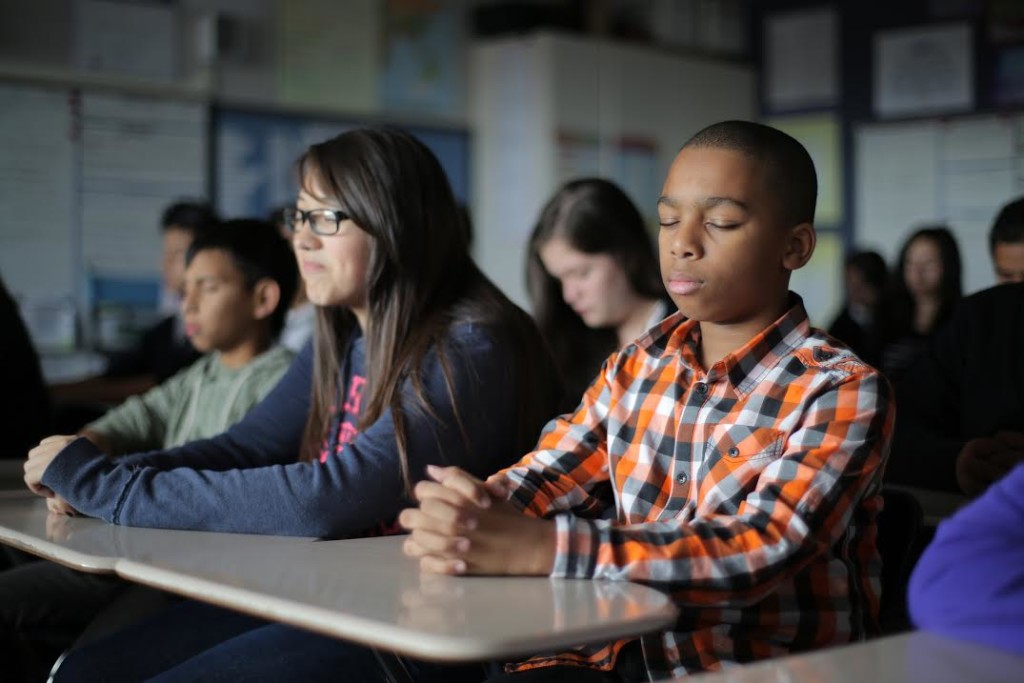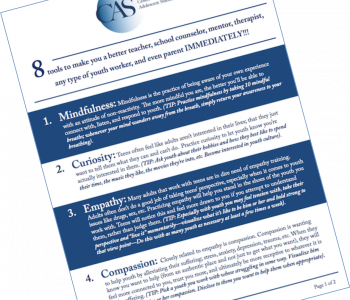

Sam Himelstein, PhD
Sam Himelstein is the founder and CEO of the Center for Adolescent Studies, Inc. He is passionate about working with youth and training the professionals that serve them.
Why Mindfulness is a Good Skill for Teens to Learn
Later this week I will have the privilege of connecting with over 300 hundred teachers, therapists, and other professionals working with teens interested in the intersection between mindfulness and youth work. This will happen at the annual Bridging The Hearts and Minds of Youth conference in San Diego, CA, and I’m lucky enough to be facilitating a workshop on working with marginalized teens—those that are adversely impacted by trauma, poverty, drugs, community violence, and oppression. One of my pre-workshop rituals is to contemplate why mindfulness as a practice is actually a good thing for young people to learn. I wanted to offer a short post on what’s arising as I prepare for my workshop:
The ability to respond rather than react is a critical skill for youth to learn
In other posts I have defined mindfulness as “the ability to be aware of one’s present-moment experience (i.e., physical, mental, emotional experiences) with an attitude of non-reactivity.” For the young people I work with daily, this is the most important reason I teach them mindfulness. Of course, all of my work rests on the authentic relationship, but mindfulness as a technique helps young people respond, rather than react. I define responding vs. reacting very simply with my clients: A response is defined as the ability to “think before you act,” while a reaction is defined as when one “acts before thinking”. This simplicity helps my clients remember the difference and the value of being able to respond. Learning to become aware of the breath, of one’s sensations, of the thoughts going through one’s mind in the moment of conflict, these skills help build space and pause where the norm is to react (often with aggression). And mindfulness can sometimes helps my clients not engage in physical aggression—and given what some of the youth I work with deal with on a daily basis, this can be live saving. Physical aggression often leads to gun violence that translates into always looking over one’s shoulder, prison, and even death.
In 2012 I published a qualitative research study on the impact of a mindfulness-based intervention with incarcerated youth. In responding to a question about mindfulness’s impact on his life, one young man stated:
Very first time I started meditation I was just the type a dude that just really, didn’t care and I hit somebody if they was talking mess, but, for me being in this class, it taught me how to control myself … and when I’m calmed down and I’m thinking, I will think about the whole problem, and just solve it throughout the day, and meditate.
Another young man stated:
Now I think twice about something. If somebody called me something, instead of swinging, I could take back a second and think about my consequences I might get … it [mindfulness] makes you think about, ‘are you sure you want to do this? Or you want to react that way?’ It just helps me a lot.
Responding rather than reacting is also an especially important skill for teens given that their brains are still developing—some research suggests that the frontal lobe (that guides executive function and our ability to self-regulate) isn’t fully developed in people until their late 20s! This is why mindfulness training is so important to teens; it can help them self-regulate their emotions and respond instead of impulsively reacting. This is especially important for teens during a life stage where even their brains aren’t fully behind them. One of my heroes, Viktor Frankl, said it best:
Between stimulus and response there is a space. In that space is our power to choose our response. In our response lies our growth and our freedom.
I love this quote because it not only speaks to the ability to choose our response, but also to the potential growth that comes of the practice. I have had countless young people describe instances like the quotes above and also speak to their development of self-esteem, feeling more authentic, and being able to better relax and practice self-care among many other benefits. Given the intense life factors of the population I work with, the doorstep to mindfulness practice is often the pragmatizing of its benefits, often starting with the discussion on why responding rather than reacting can be life saving.
There are, of course, countless other benefits to mindfulness practice for teens. I simply wanted to convey here the main intention that arose for me as I prepare for my workshop. See below for further resources on using mindfulness with young people:
Trainings
- Check out the brief free training on this site, Mindfulness as an Intervention for Adolescents
- For a deeper review of how to use mindfulness in relationship building, see the BARs Online Course
- For working with substance abusing youth, check out the MBSAT Curriculum Certification
- Mindful Schools also has some introductory and advanced training courses
- A Still Quiet Place hosts online mindfulness trainings for those working with children and adolescents
Books—General Work with Youth
- A Mindfulness-Based Approach to Working with High-Risk Adolescents (my book)
- Teaching Mindfulness Skills to Kids and Teens
- Mindfulness Skills Workbook for Clinicians and Clients
- The Mindful Child
- Power Source
Books –Mindfulness-Based Curricula
- Mindfulness-Based Substance Abuse Treatment with Adolescents: A 12-Session Curriculum (another of my books)
- A Still Quiet Place for Teens
- Learning to Breathe
- The Power Source Facilitator’s Manual
Books—For Teens
- The Mindful Teen
- The Stress Reduction Workbook for Teens
- Mindfulness for Teen Anxiety
- Mindfulness for Teen Anger
Related Posts on using mindfulness in your work with youth:
3 Tips for Using Mindfulness in Substance Abuse Treatment with Adolescents
3 Ways Mindfulness Can Help in Crisis Situations
10 Essential Guidelines for Teaching Meditation to Trauma-Impacted Youth
Three Dangerous Misunderstandings About Mindfulness
To be part of a regular mindfulness practice community with weekly live practices on Zoom and FREE self-paced courses on teaching mindfulness to youth, join our FREE Training Community, here.


